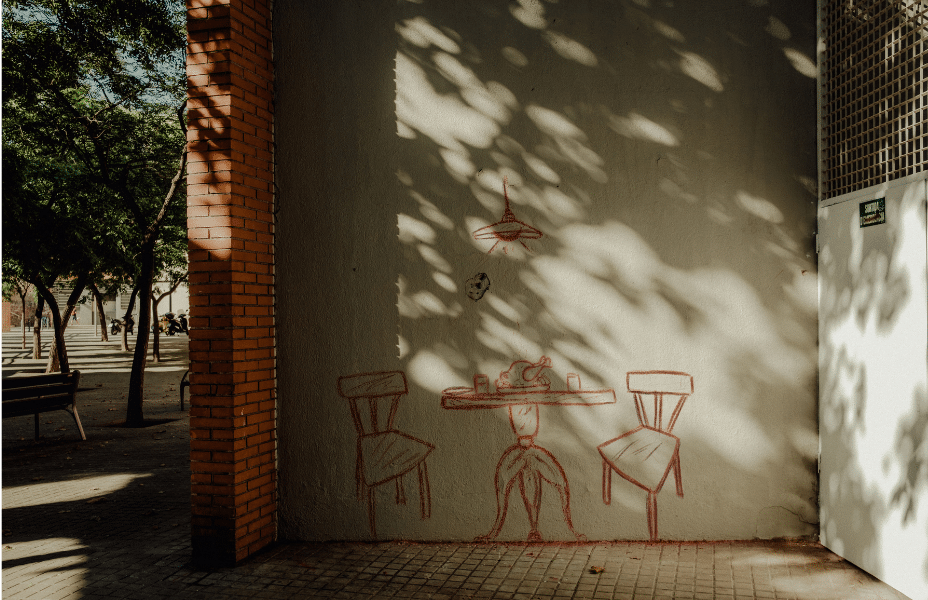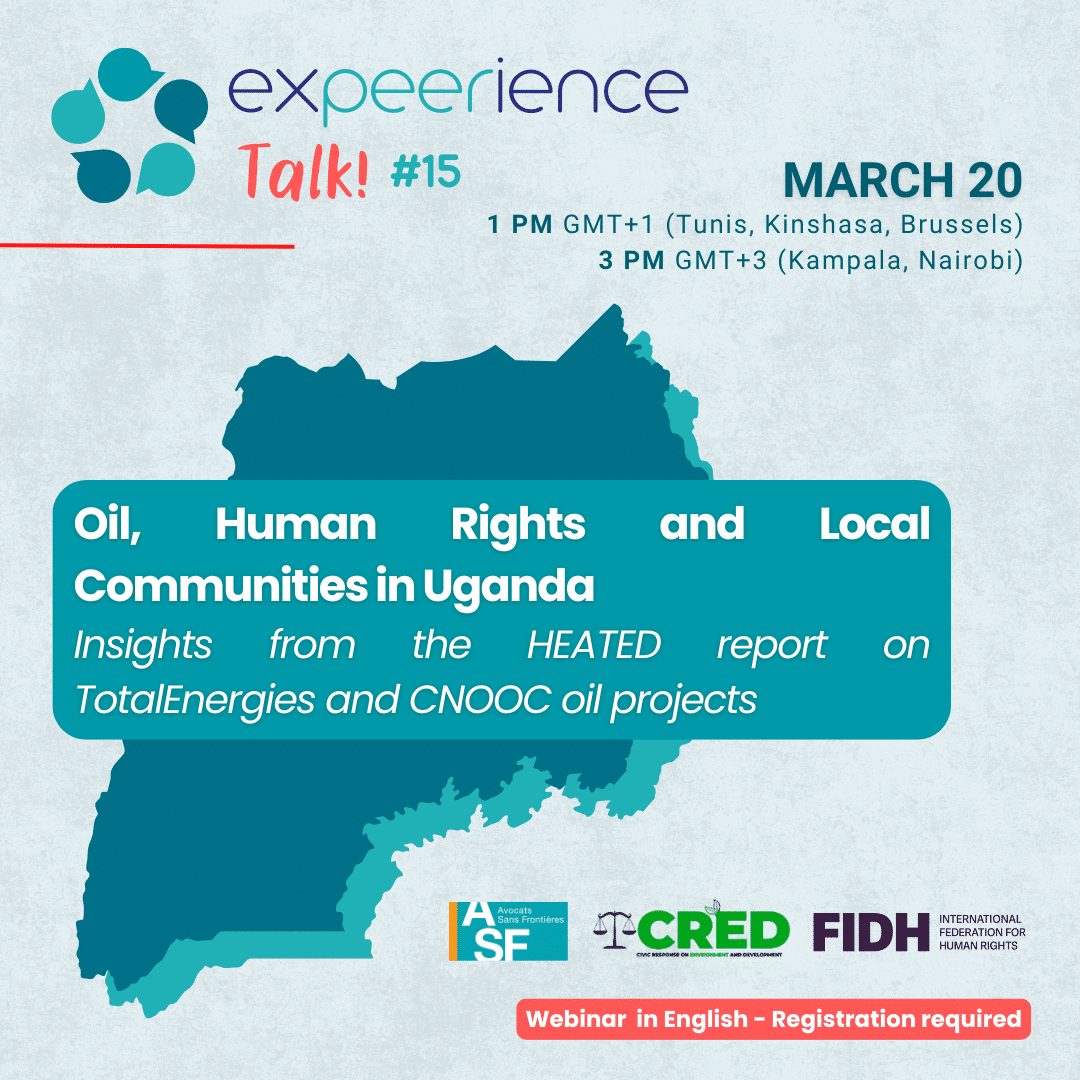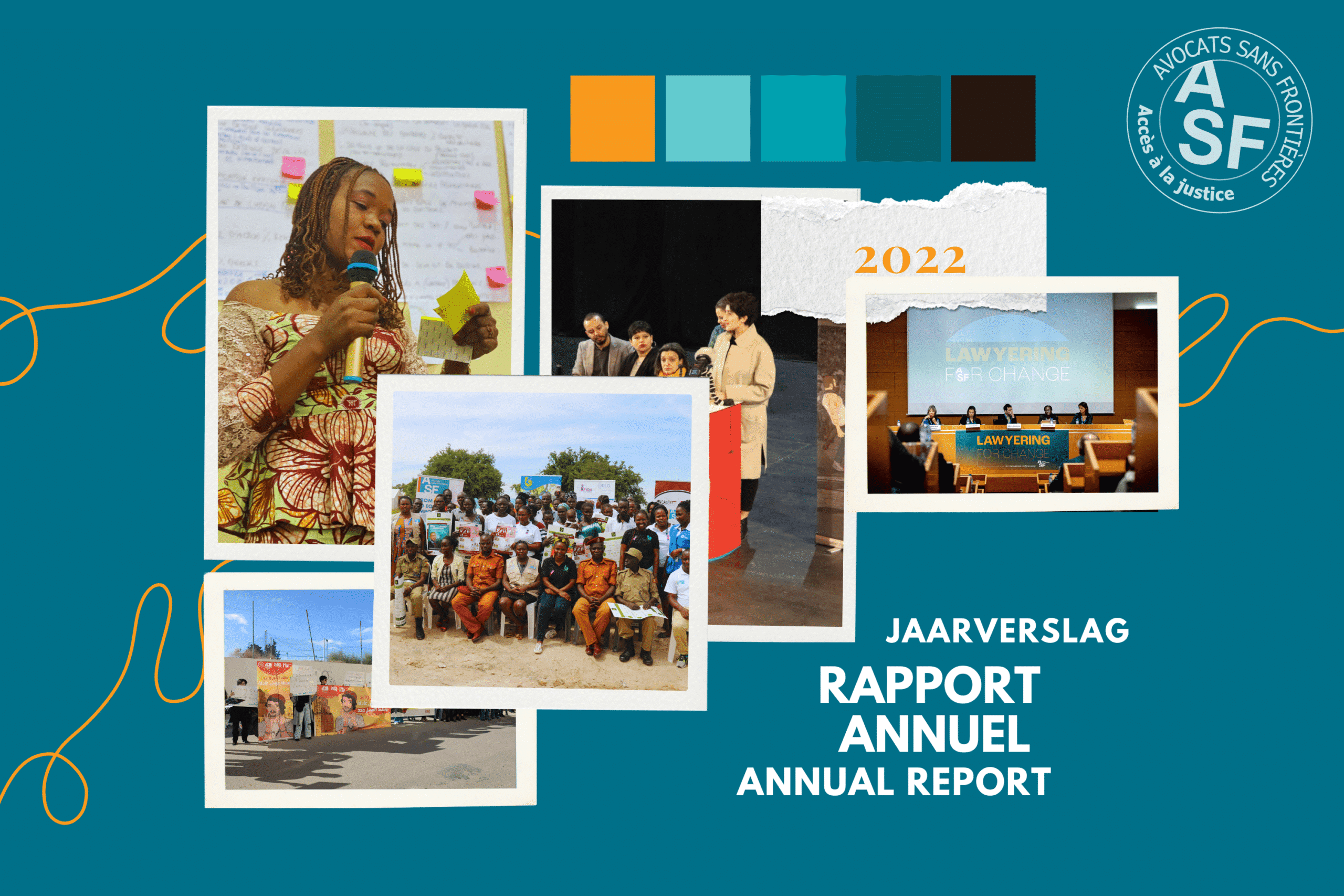Category: Access to justice and development
-
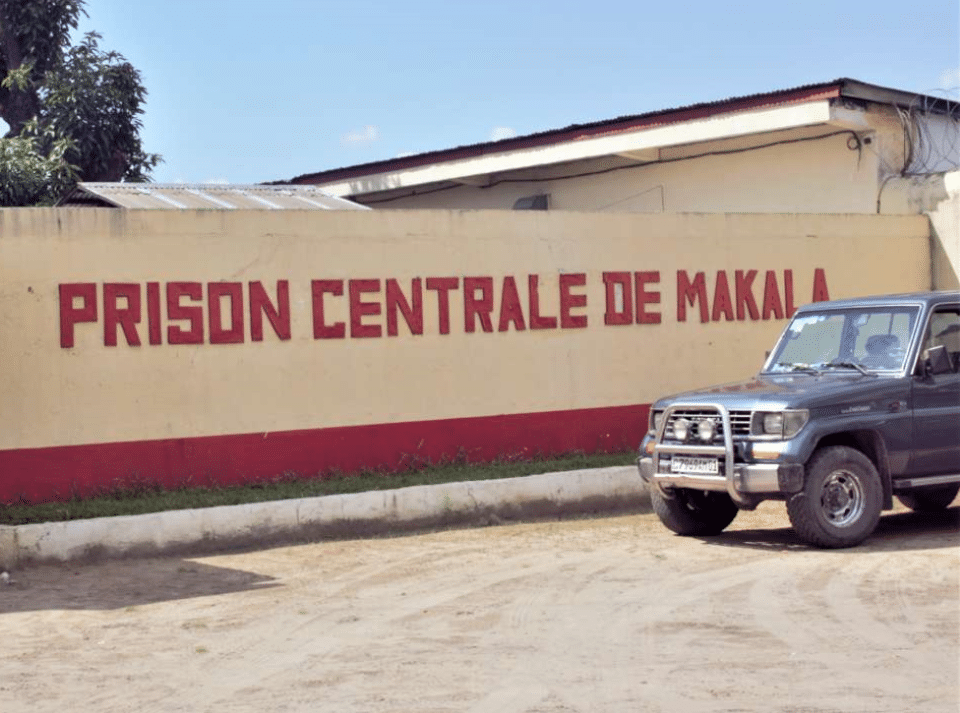
Democratic Republic of Congo – The Makala prison tragedy of 2 September 2024: Chronicle and causes of a foreseeable tragedy
On 2 September, 129 prisoners were killed in Makala prison in tragic events that we still struggle to qualify. In the midst of this chaos, 268 of the 298 women imprisoned at Makala were victims of rape. This tragedy was foreseeable and is unfortunately not an isolated case in the country. ASF and its partners…
-

Tunisia: People in migration threatened by the rise of discriminatory rhetoric and policies
Because of its geographical position and proximity to the European coast, Tunisia has long been considered a major transit country for sub-Saharan migrants. However, heightened security measures and the militarization of the European Union’s borders, as well as border outsourcing policies, have meant that Tunisia has become a country of settlement for many people in…
-
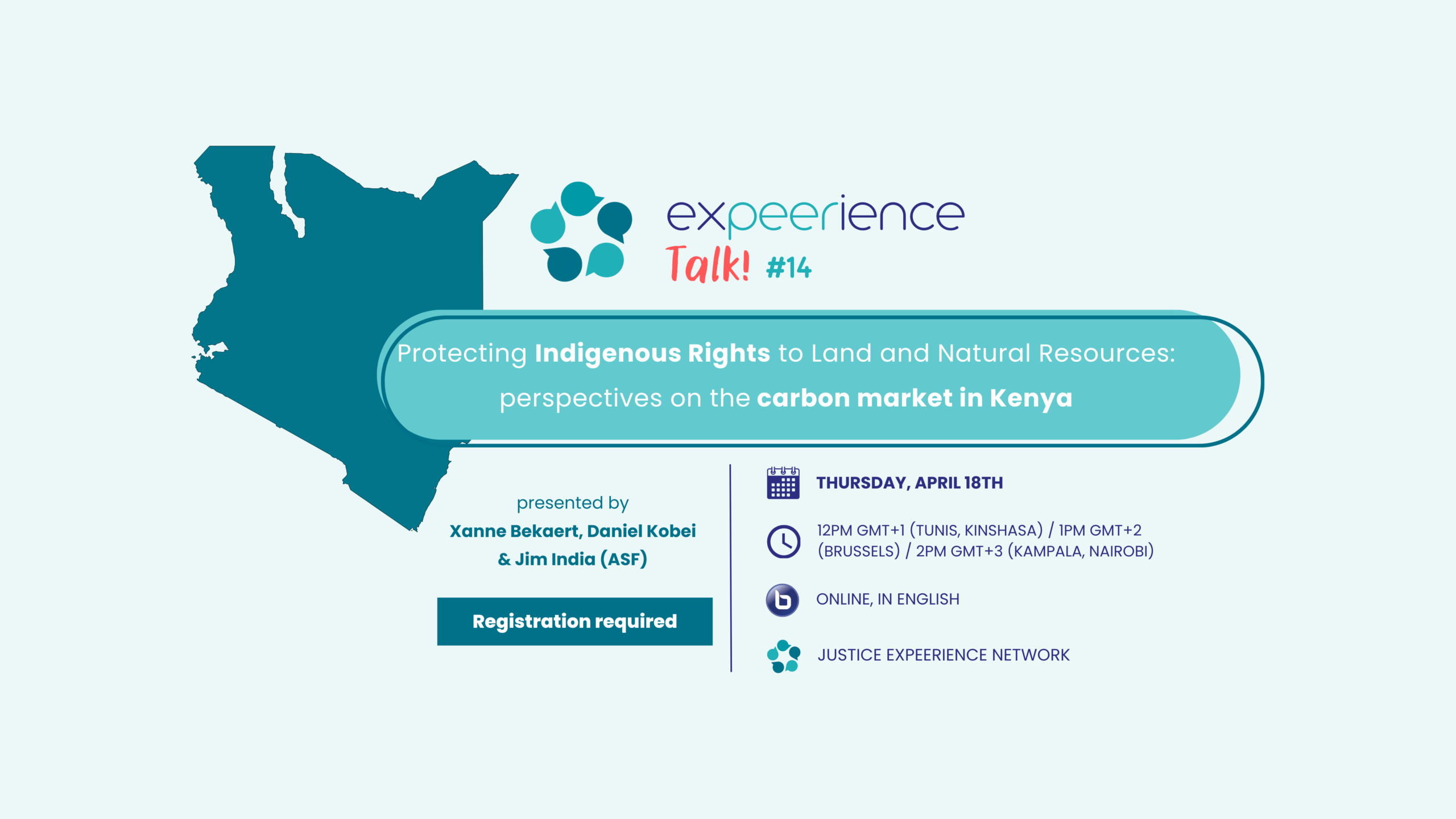
ExPEERience Talk #14 – Protecting Indigenous Rights to Land and Natural Resources: perspectives on the carbon market in Kenya
This talk aims to shed light on the complex relationship between carbon markets and indigenous rights in Kenya, with possible lessons to be learned for other countries in the region, and beyond. By incorporating perspectives from academic researchers and representatives of indigenous communities, the event seeks to contribute to ongoing discussions on environmental justice and…
-
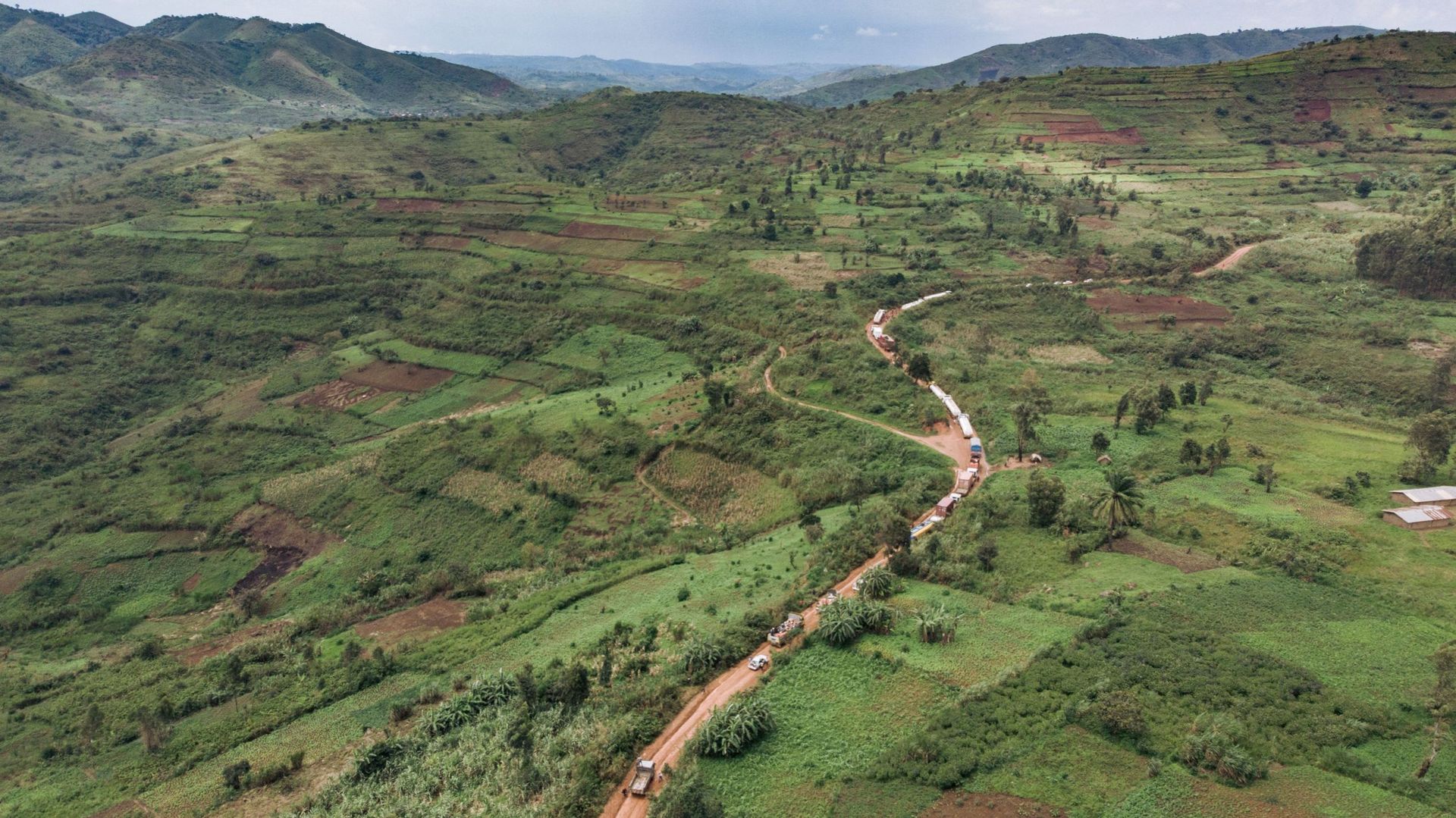
Ituri: Impact of the state of siege on criminal justice
En mai 2021, l’État congolais a décrété un régime exceptionnel d’état de siège dans la province de l’Ituri pour tenter de mettre fin à plus de trois décennies de violence dans la région. L’ituri est le théâtre de guerres, d’insurrections et de violents conflits armés sur fond de crise de légitimité politique, de crise identitaire…
-
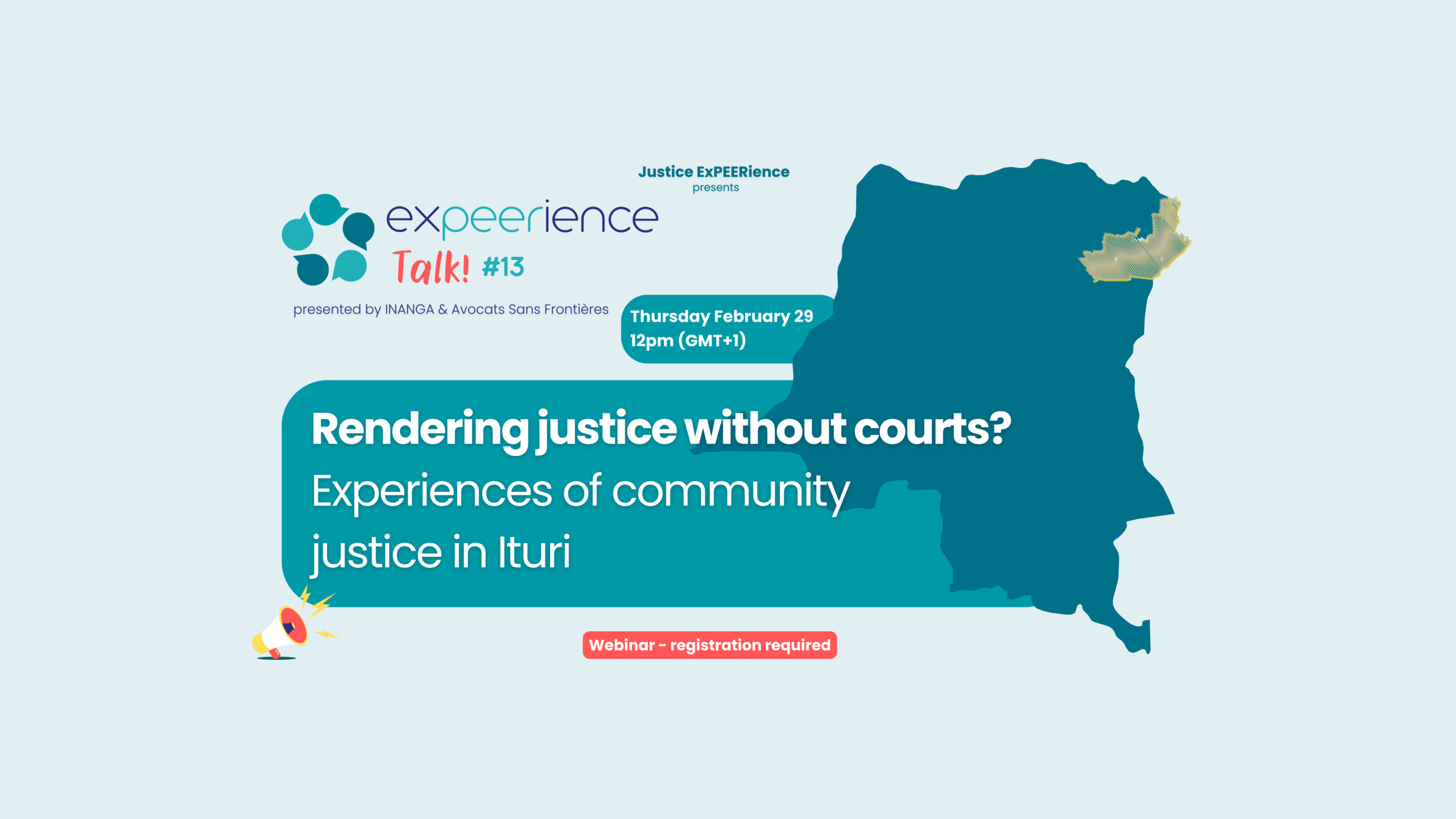
ExPEERience #13: Rendering justice without courts? Experiences of community justice in Ituri
At this ExPEErience Talk, Julien Moriceau and Janvier Digital Koko Kirusha from INANGA, and Johnny Lobho Lamula from ASF in the DRC, will present a study on community justice in Ituri, which will be published in the coming days.
-
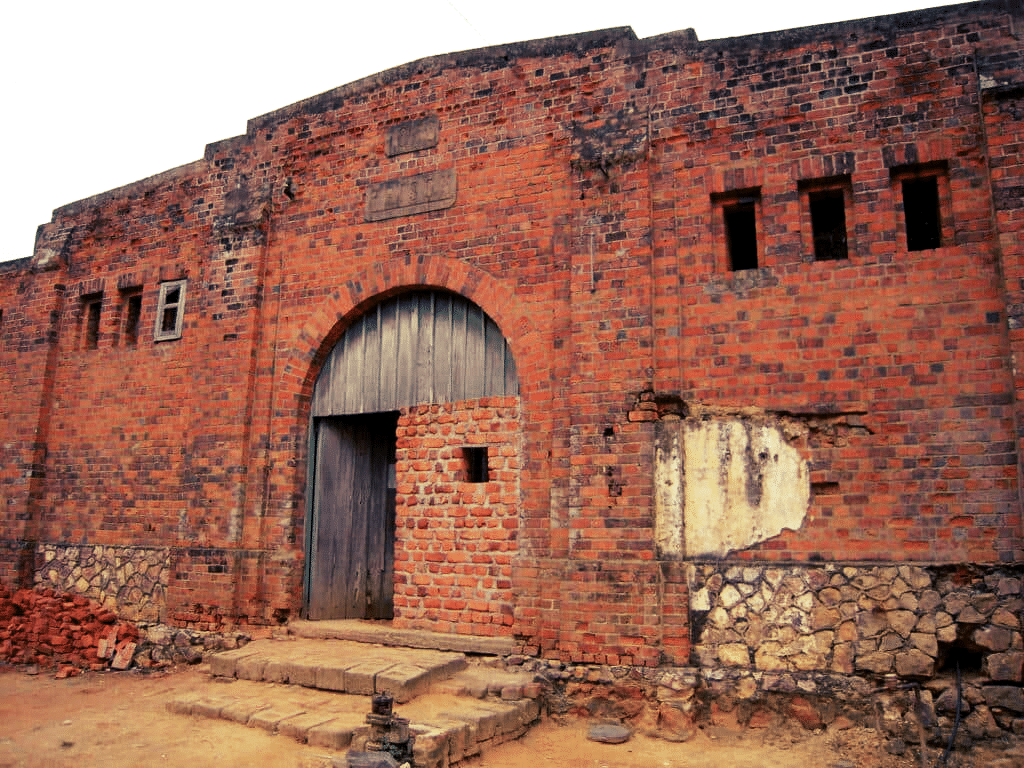
Combating prison overcrowding and illegal detentions in the Democratic Republic of Congo
In this article published in ASF’s latest annual report, we look back at the situation of detention in the Democratic Republic of Congo (endemic prison overcrowding, endemic violations of prisoners’ fundamental rights, etc.) and the action taken by ASF and its partners to assist people in detention and work for structural and sustainable change in…
-
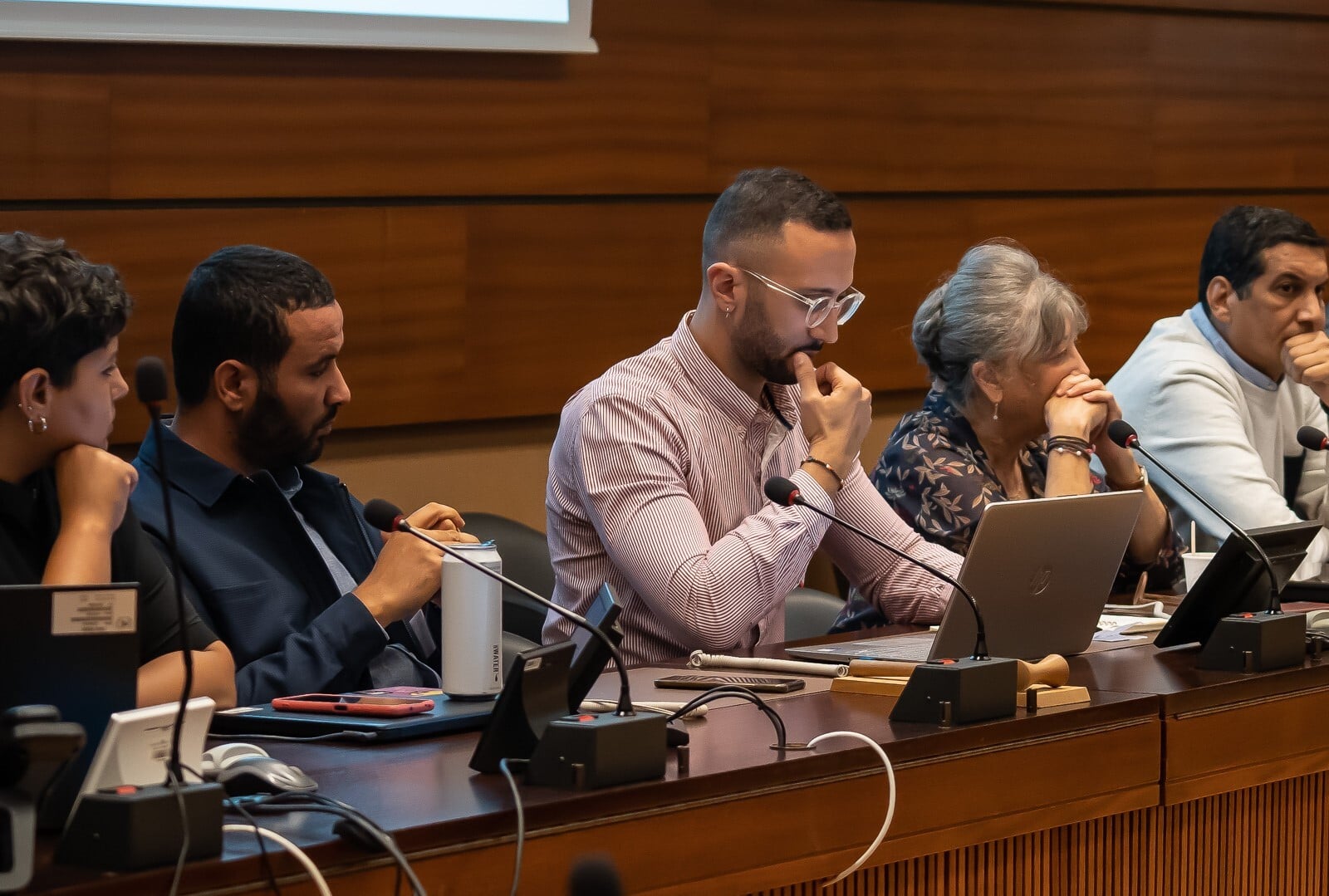
ASF’s Euro-mediterranean regional hub
In 2018, ASF launched a regional hub in the Euro-Mediterranean region, based in Tunis, with the aim of pooling resources and strengthening and harmonising its action in the region. The innovative aspect of the regional office is to fully assume the historical, economic, political and cultural links that exist between the two shores of the…

